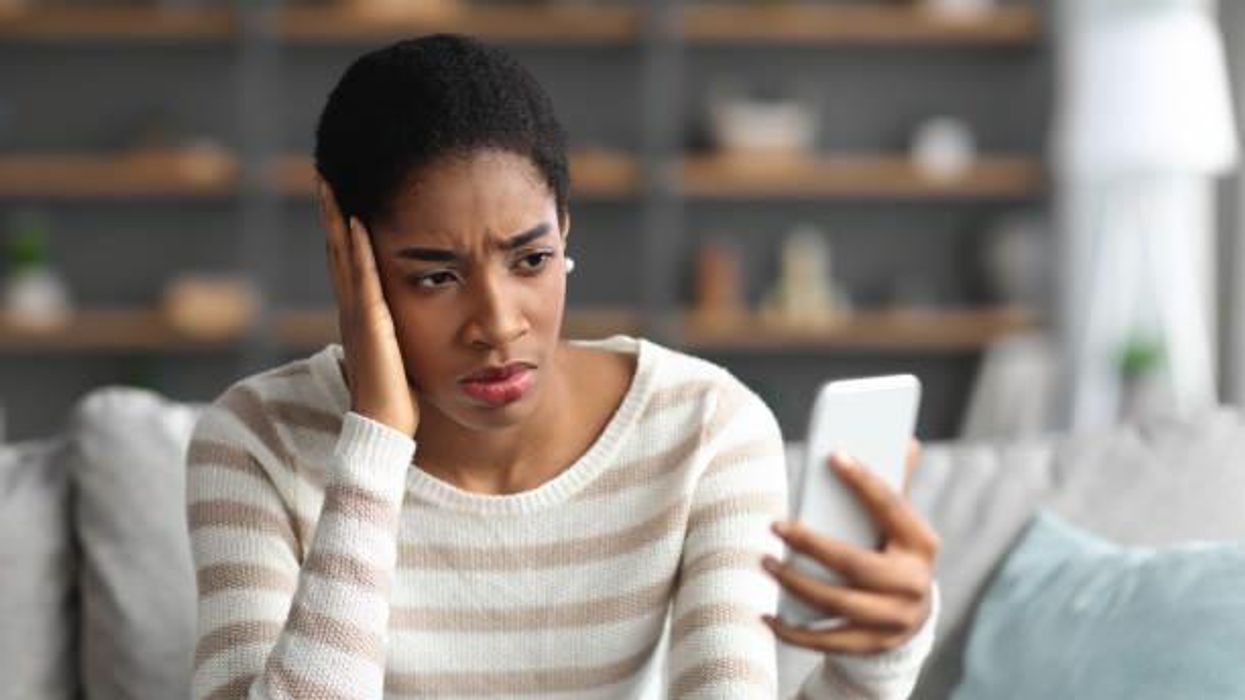So, what exactly is anxiety?
Although anxiety is an unpleasant feeling, the brain is not trying to punish or hurt you in any way. "On the contrary - it is trying to keep you safe and away from harm," they explained.
Humans all have a primal instinct known as the fight-or-flight response – this warns the body of danger.
The Speakmans describe anxiety as an "internal protection response," which forces adrenaline to pump through the body and cause symptoms such as rapid heartbeats, sweating, hyperventilating and needing to use the toilet, among many more.
Sign up to our free Indy100 weekly newsletter
In most cases, there is no actual physical danger, which puts the fight-or-flight response down to anxiety.
In today's society, the said "dangers" are often more psychological, prompting the body to want to protect itself from feelings such as uncertainty, embarrassment, judgement, fear, and vulnerability.
Nik and Eva used an analogy of a smoke alarm to contextualise the experience.
"The smoke alarm is installed to protect you – therefore, whether it senses smoke from a real fire or smoke from burnt toast, it will activate all the same," they explained.
"The same can be said of our anxiety and our protection response. Its intention is good, but its sensitivity to be activated depends on our prior individual life experiences and our individual personal interpretations of them."
Why do people experience anxiety?
There's been a long-standing debate surrounding the causes of anxiety. However, the Speakmans believe the prime reason is trauma.
Anxiety is completely normal in given contexts. For instance, a friend or family member could be unwell, and so, feelings of worry are understandable.
Issues arise, however, when a person starts to feel triggered unexpectedly and randomly.
"Indeed, we are basically stimulus-response animals," the couple said. "Although we may not know the exact trigger ourselves – we believe anxiety is never random, likely triggered by a thought, feeling, smell – or something that we see, hear, touch, or think about. This trigger relates to prior trauma, from somewhere in our lifetime."
Some adults believe they have not experienced any obvious trauma, but the Speakmans argue it can stem back to childhood.
"What may not appear traumatic to you now as an adult could have been very traumatic to you as a child, and the fight-or-flight response attached to memories and triggers from that childhood trauma," they said.
"If these past traumas have been left unaddressed, they could potentially lead to what feels now like completely random anxiety attacks and therefore potentially being labelled as general anxiety."
Here are five useful tips to help if you’re feeling anxious or building to a panic attack:
1. See the situation for what it is now and not how it felt at the time
"Understanding and appreciating that your body is not trying to punish you, but the complete opposite, it is trying to protect you – can give you a sense of calm, acceptance and reassurance.
"Referring to a panic attack as a ‘protection attack’ is more accurate and can help you feel less anxious and more in control."
2. Try controlled breathing
"Close your mouth and inhale quietly through your nose to a mental count of four. Hold your breath for a count of seven. Then exhale completely through your mouth to a count of eight."
3. We have found that sighing has a rapid, calming effect
"If you’re somewhere safe where you feel you can close your eyes, then do so. If in public, then this can be carried out with your eyes open.
"Breathe in fully and then breathe out with an exaggerated sigh. Repeat the process and with the second sigh, allow your shoulders to drop. Repeat and with the third sigh, allow your shoulders to drop, and imagine yourself sinking into your seat (or the floor)."
4. Use your senses to help distract your protection response
"To interrupt the development of a panic attack (now better referred to as a protection attack) by practising the 5, 4, 3, 2, 1 technique.
"Look around you and consider five things that you can see (really look at the colours, texture, depth etc.), four things that you can touch (consider texture, heat etc), three things that you can hear, two things that you can smell and one thing you can taste."
5. Practice daily gratitude
"This method can help to boost your mood – as can exercise, yoga, mindfulness, meditation and healthy eating."
For those who suffer from anxiety, it is important to reach out to a doctor and discuss a possible referral for a talking therapy, such as Cognitive Behavioural Therapy (CBT), psychotherapy, or counselling.
The pair suggested that with therapy and "practising some of the techniques suggested above, additionally spending time with people who are positive and make you feel loved and appreciated (plus many more positive distractions), you can improve."
The Speakmans currently have two remaining workshops across the UK, which you can find out more about here. The Speakmans' new book, Upgrade Your Life, is also available to buy now.
Have your say in our news democracy. Click the upvote icon at the top of the page to help raise this article through the indy100 rankings.














